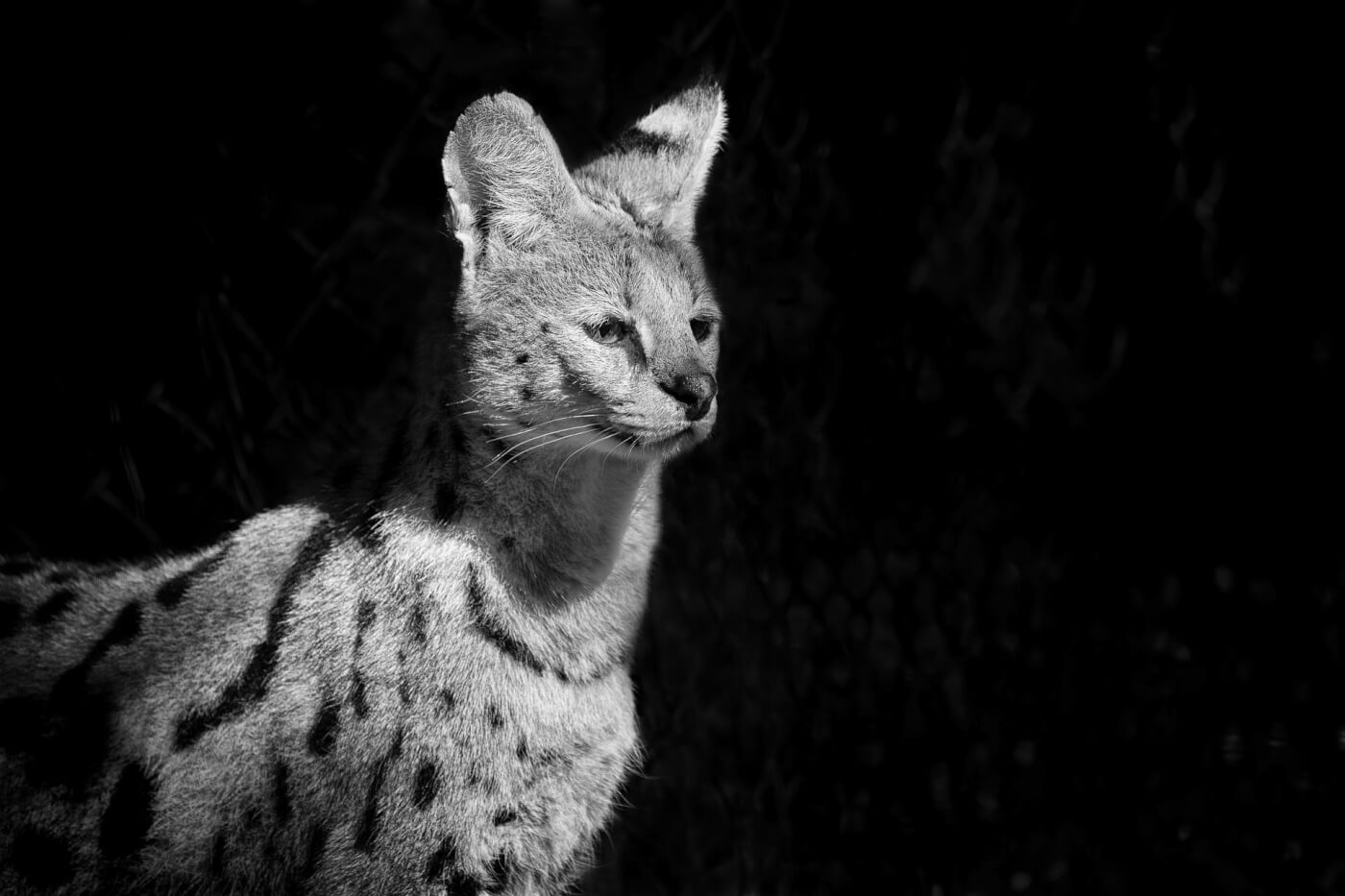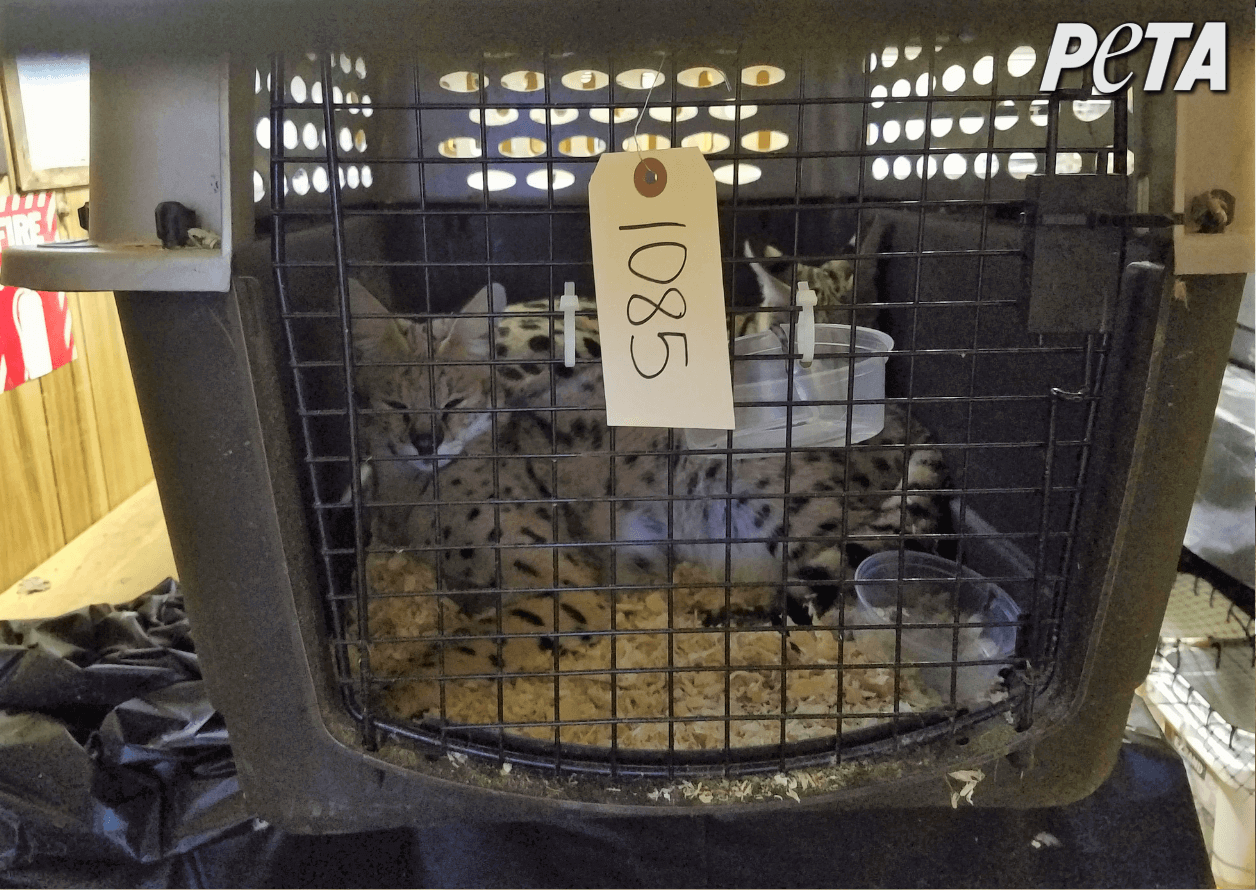‘Cocaine Cat’ Case in Cincinnati Causes Commotion; PETA Says, ‘Leave Servals Alone’
Forget Cocaine Bear—a new incident involving a wild animal on drugs is making headlines. According to reports, an African serval cat formerly kept as an illegal “pet” in Ohio is recovering at the Cincinnati Zoo & Botanical Garden after a harrowing ordeal. The serval, who allegedly escaped from his owner’s car and climbed a tree, was ultimately rescued by animal control officials. Unfortunately, he sustained a broken leg in the process—and a toxicology report revealed that there was cocaine in his system. Thankfully, he’s receiving veterinary care and expected to recover.

Wild Animals Aren’t ‘Pets’—Leave Servals and Other Animals in Peace
The exotic-animal trade poses a danger to humans as well as animals. There have been dozens of attacks by captive wild cats on humans in the past decade. In one incident, a tiger mauled his owner’s 3-year-old grandson. A lion killed several dogs and trapped a child in his room, and a Bengal tiger tore off the arm of a 4-year-old boy.
Selling protected wildlife in stores, at auctions, or on the Internet is one of the largest sources of criminal earnings, behind only arms smuggling and drug trafficking. But the animals pay the price. Many don’t survive the journey from their homes, and those who do often die prematurely from malnutrition, an unnatural and uncomfortable environment, loneliness, or the overwhelming stress of confinement.

In the hands of unprepared or incompetent owners, many exotic animals die or are abandoned outdoors. Without appropriate habitats or rehabilitation, these animals starve or fall victim to the elements or predators. Those who do survive may overpopulate and wreak havoc on local ecosystems, killing native species.
Few Government Regulations
Federal, state, and local governments are passing laws that prohibit the private ownership of certain dangerous species, but most of these regulations are poorly enforced and designed to protect humans from injury and disease rather than ensuring that animals are handled humanely.
What You Can Do to Help Animals Like the Cocaine Cat
Never buy exotic animals—or any other animals—from dealers, breeders, or pet shops, and support legislation that would make owning them illegal and prohibit their interstate sale.

